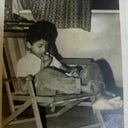mother tongue and other languages

Wrote this in response to an article by one of my favourite authors, Natasha Badhwar — https://natashabadhwar.medium.com/how-an-indian-defeated-the-chinese-in-china-5de7049729a4
The language which I cry in and let out an exclamation when happy is Konkani. To this day, it remains the default language among all my siblings. The best part about the language is the air of informality about it — there is no real word for “aap” in Konkani — if there is — mujhe kissi ne bataya nahi.
Growing up, we moved into Hindi, English, Gujarati (Mumbai bred) and Marathi of course. Conversations were a weird mix of all these languages among friends. I remember this one chap who had just moved in from delhi — so in the evening adda he goes “ Mai aapko ek chutkula sunata hu” — blank faces in response — it was possibly the first time someone referred to us as “aap” and what in the world was “chutkula” — so someone explained “joke re baba, joke”. Then he starts — Ek muni ki kutiya thi — good lord — that really cracked us up. Total bouncer — then someone translated in Mumbai hindi — “Ek saadhu ki jhopdi thi”…
Now Konkani is nostalgia; the language of a shared childhood. We use it to cling to all that we don’t want to leave behind. Konkani is the peace, i aspire for. Konkani is what i will return to, like a artic tern finding its way back home. I do speak with my Avanti (my daughter) once in a while, she does understand but feels too shy to speak.
English the language i think in now. The default setting as it were. Movies, music (not much) and books. Thoda likhna bhi hota hai.
Hindi and Marathi — for films, music, poetry — books not so much.
Malayalam is aspirational- want to learn. big fan of malayalam movies — don’t understand a word — subtitles zindabad. Also always wanted to learn Tamil just to experience Prakash Raj’s monologue at the end of the film- Iruvar.
I remember this lady who would come to our house often — she would sell rice in our neighbourhood. We knew her as Chawalwali. Our home was like a pitstop for her. She would rest for a few hours after her rounds and then head back home. My mother would buy some rice from her and give her some food/tea. She in turn would do small little chores of the house. She spoke in telugu — a language none of us ever understood. To this day, we always marvel at that memory — my mother in her konkani/hindi mix and Chawalwali in her telugu. Somehow they found a space where each understood the other.
I guess that’s the most important thing — creating that space where we understand each other. where languages will speak us, understand us and make us whole.
Thank you so much for this.
